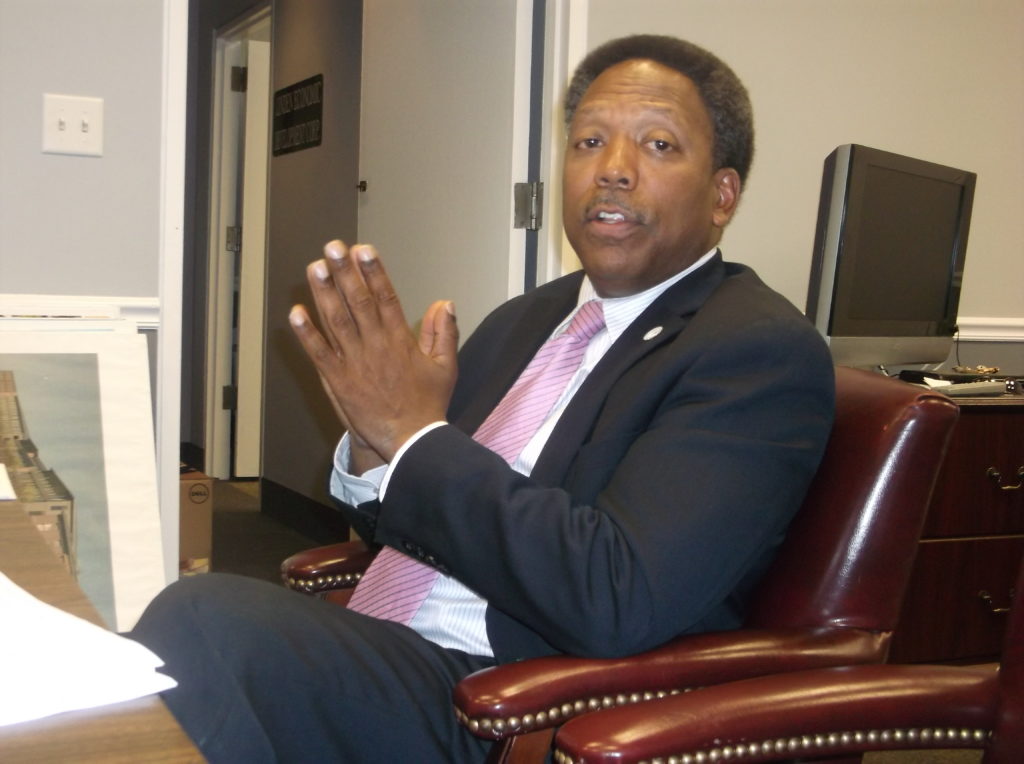Armstead: City Council Probes if Member Broke any Laws

City Council Probes if Member Broke any Laws
An investigative committee empaneled by the Linden City Council is looking into whether a member of the governing body broke any laws when he apparently trespassed on municipal property, tampered with evidence used to make false police reports, and sought to create a campaign controversy over the removal of illegally placed political signs.
A video released by the Mayor’s office shows 6th Ward Councilman John Francis Roman
entering the city’s Department of Public Works (DPW) yard on Wednesday, May 29, 2019 at
approximately 5:28 p.m., although he was unauthorized to be there after hours.
City crews routinely take away political signs posted in traffic lanes, public rights of way and anywhere else that they may endanger drivers and pedestrians by obstructing visibility on the roads.
In the video, Roman located a DPW pick-up truck that contained campaign signs removed from the public areas, then he shuffled the signs around to hide those belonging to 7th Ward Councilman Ralph Strano.
At the time, Roman was backing Strano’s rival, Terrance Brown, and four other candidates.
Roman took pictures of the signs, then used that manipulated evidence as the basis for the letter Senator Nick Scutari sent to the State Attorney General asking for an investigation.
Mayor Derek Armstead said the video makes it clear that Roman “manipulated” the alleged evidence to suit his purpose.
The investigative committee will determine if Roman or anyone else filed false police reports, violated trespassing laws, or is guilty of another crime that should be reported to law enforcement of punished by the governing body.
Council President Michele Yamakaitis and 4th Ward Councilman Alfred Mohammed were designated as members of the investigative committee.
Both commercial advertising and political signs, posters and banners are dangerous when placed within vision areas at intersections. Signs and other objects on the right of way pose potential safety hazards, particularly if they block views for motorists near intersections or curves, so they may be to reduce the danger of crashes.
Some municipalities in the Garden State are extremely vigilant with the removal of signage on public property, dispatching public works crews on a daily basis to remove signs, according to Montclair State University political science professor Brigid Callahan Harrison, who said it is smarter to post them on lawns rather than random intersections because signs on private-property prove support from residents.
“That is a much more effective mechanism of communicating support to voters than just smacking it on the side of an empty Dairy Queen,” Harrison said. “They really don’t effectively convey a level of support. They just convey the fact that the campaign bought signs and posted them.”
The problem has reached such proportions that state Senator Loretta Weinberg once proposed a fine of $25 per sign each day they remain posted on public property. Armstead said the issues here are larger than the signs.
“We must not have people breaking into city facilities with impunity and it is a very serious crime to obstruct justice or falsify evidence,” Armstead said.










